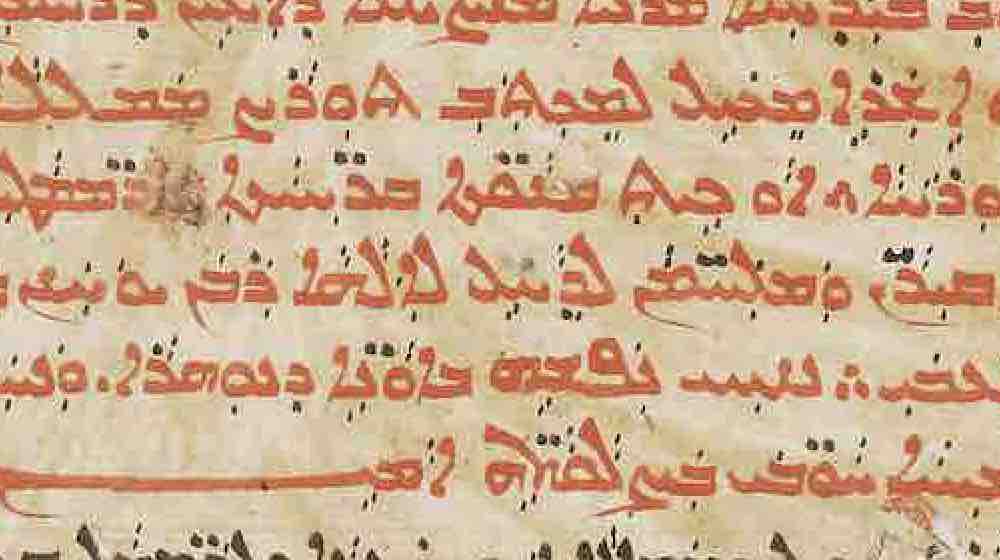Let It Fall As Rain
Let it Fall as Rain
This story is part of an ongoing series of editorials in which HMML curators and catalogers examine how specific themes appear across HMML’s digital collections. From the Eastern Christian collection, Dr. Jeremy R. Brown has this story about Weather.
Few things can impact daily life in quite the way that weather does. These can be small inconveniences like rain on a ball game or an unexpected snow day for one’s children. However, the weather also holds life-altering power through events small and large. In two manuscripts photographed in Ethiopia, droughts, rain, and hailstorms become the focus of human communication with the divine.
A devastating drought is described in the Book of Kings (1 Kings 17–18) and in a homiliary for Elijah, the latter digitized at Dabra Gannat Ēlyās Monastery in Goğğām Province. In the biblical story, the prophet Elijah—in his ongoing showdown with King Ahab of Israel—declares that no rain will fail until God says so. Elijah then flees to hide near a creek bed and is provided for by ravens until the creek runs dry.
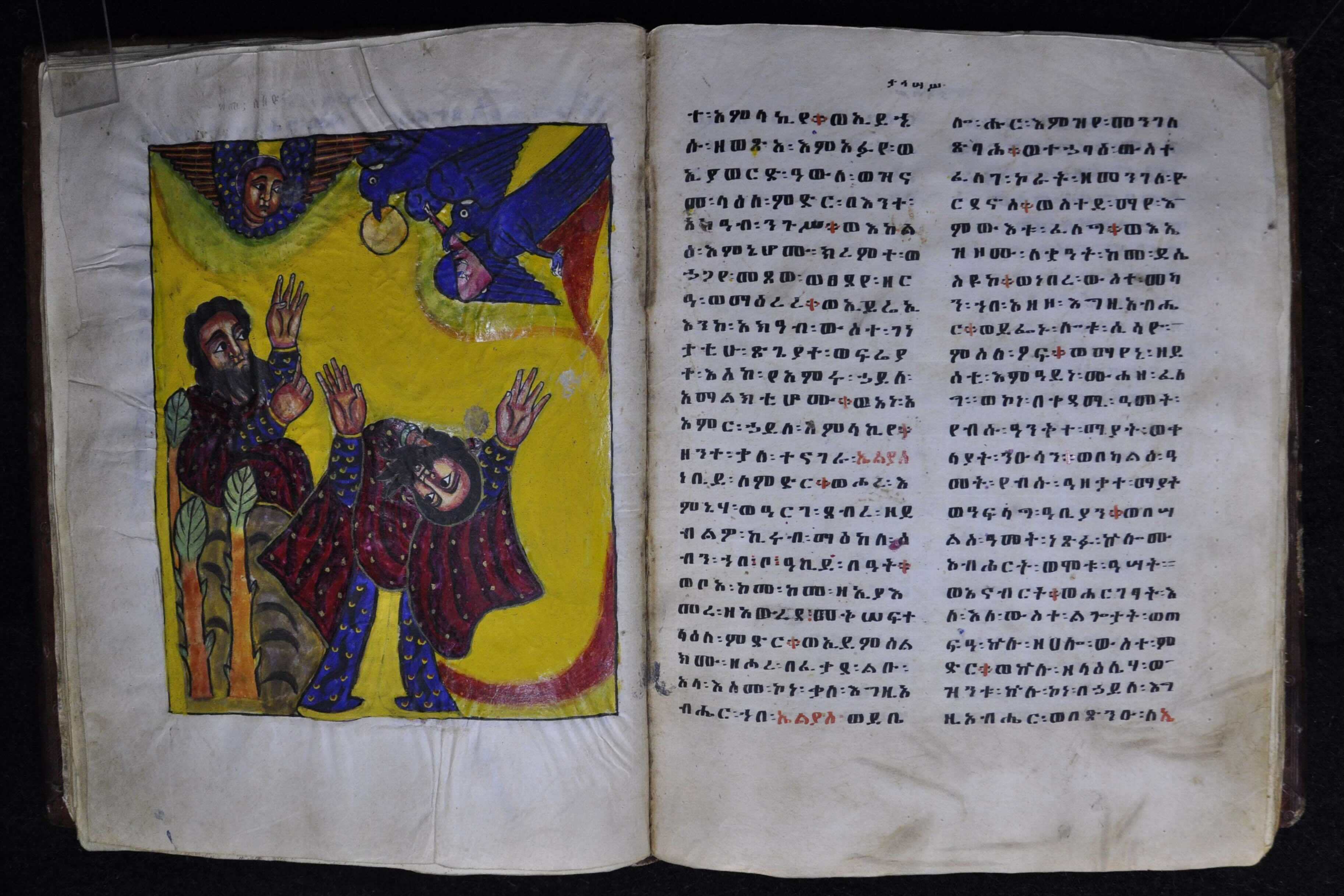
After the drought reaches Elijah’s creek bed hideout, God sends him to Zarephath, a Phoenician city on the Mediterranean coast. There, Elijah meets a widowed woman and her son. Soon after Elijah’s arrival, the son falls ill and is at death’s door. Although the story does not specify if the illness is due to the drought and subsequent famine, one is left to wonder if they may have had an impact on the child. Ultimately, Elijah prays, and the son is revived.
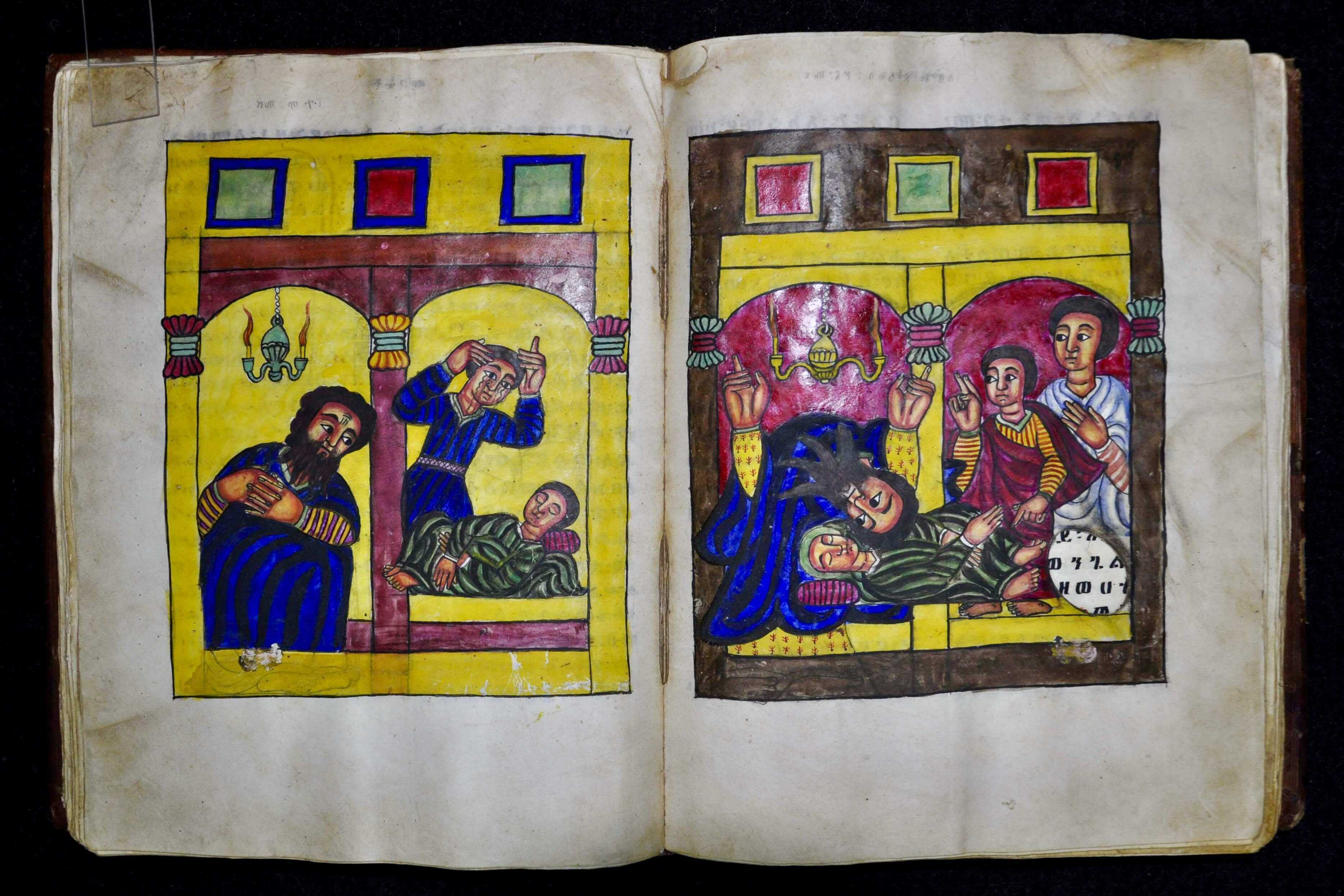
The story progresses to a dramatic conclusion. Elijah’s burnt offering on Mount Carmel succeeds where King Ahab’s preferred prophets of Baal falter, leading to the destruction of the proponents of this Levantine deity. Following Elijah’s victory, the Homiliary for Elijah (known as the ድርሳነ፡ ኤልያስ or Dersāna Ēlyās) tells us:
“Little by little, the sky darkened with clouds. Then a storm arrived, and the rain fell.”
With the arrival of rain, natural order was restored and the land and its people recovered.
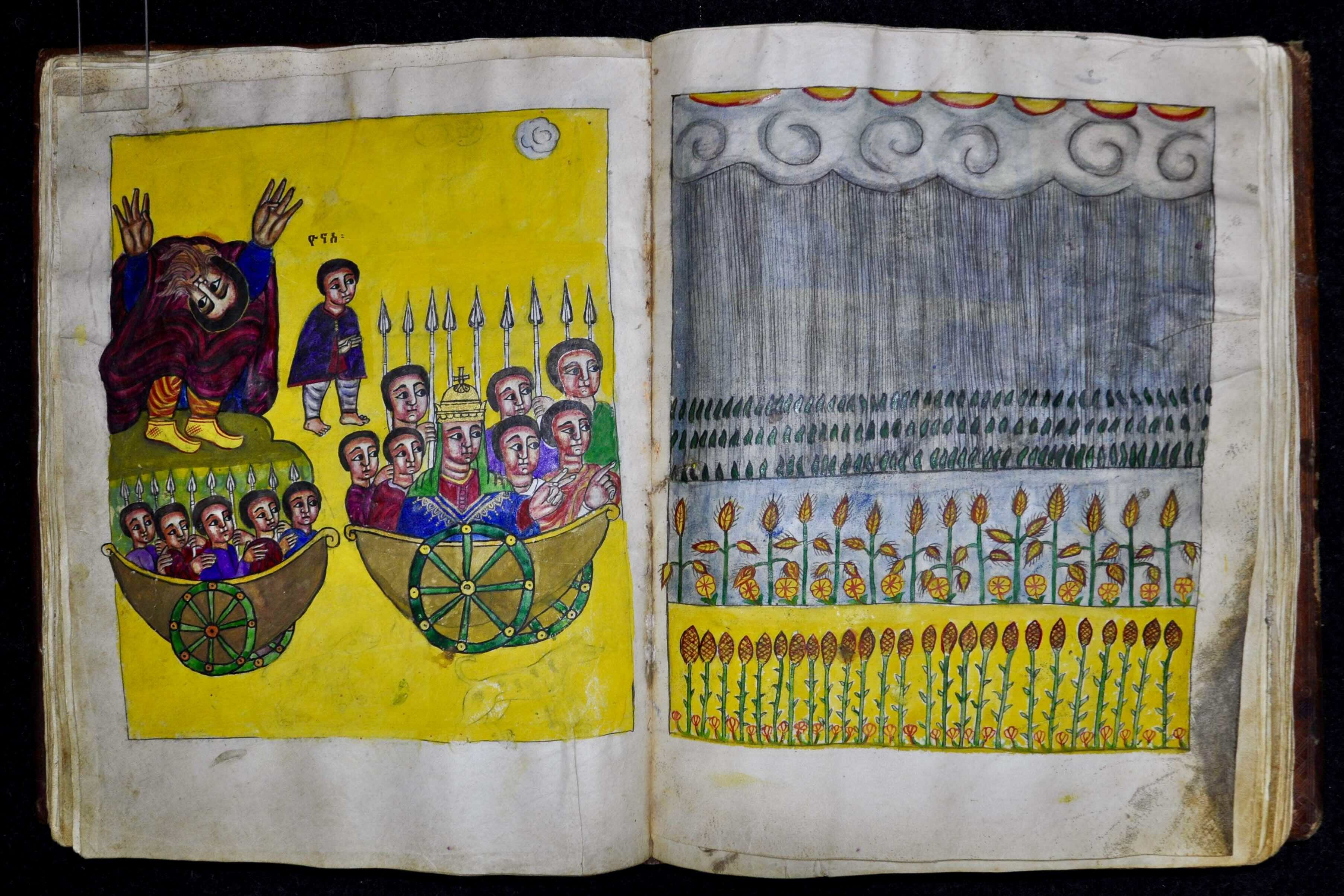
Invoking Elijah
This story resonated several thousand years later with a person praying in Ethiopia. Onto the front flyleaves of a psalter dated to the second half of the 18th century or the first half of the 19th century (EMML 2522), this person wrote a prayer against hail—a form of precipitation known for its ability to destroy homes, property, and crops, as well as to cause injury. Their prayer for protection can be divided into two sections: 1. Praying to God, the creator, 2. Praying to the Virgin Mary, the intercessor.
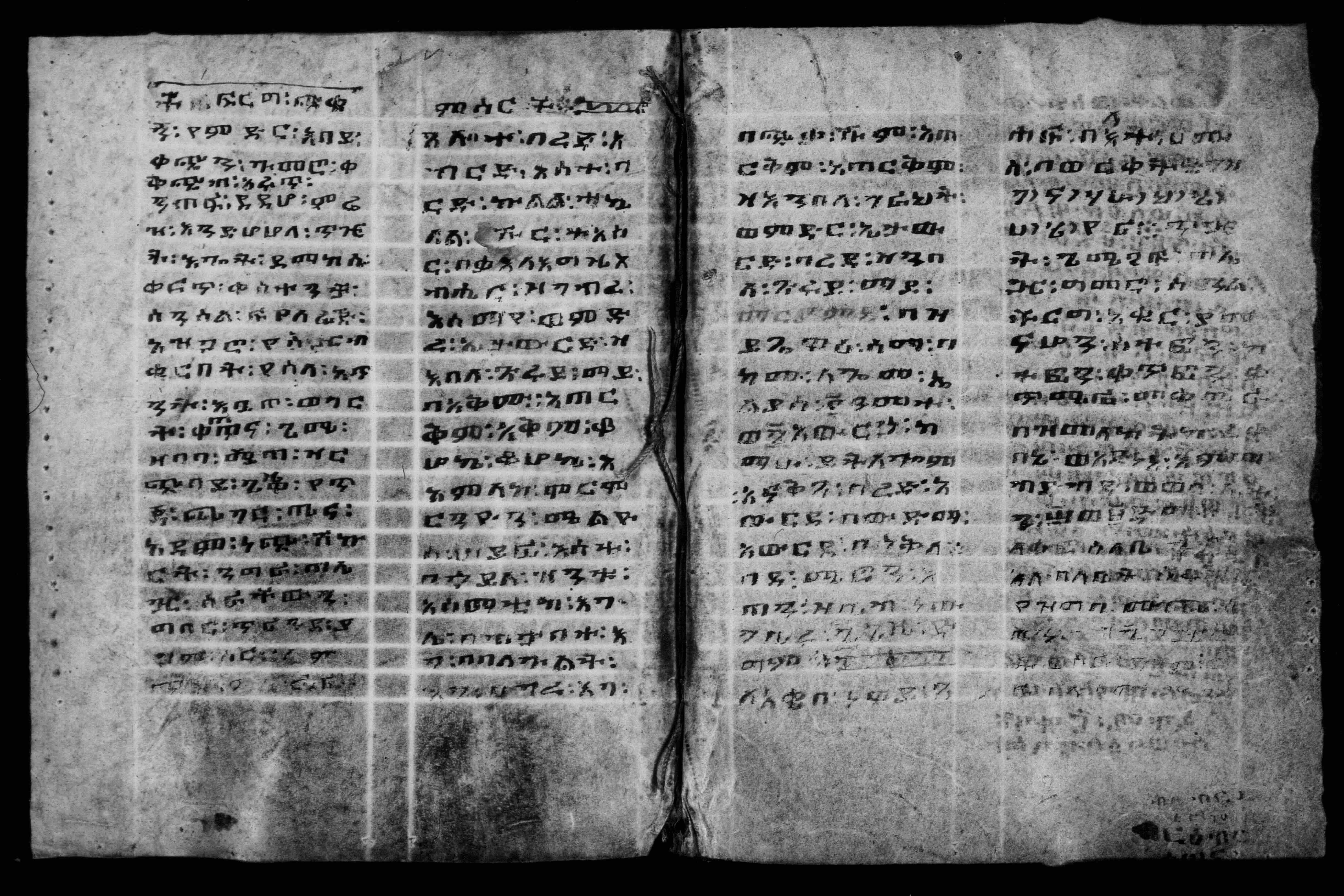
In the first section, the prayer calls upon God’s creative power to either prevent hail or to remove its destructive properties. First, the prayer asks that hail be prevented through “the word of God, the maker of heaven and earth.” Next, the prayer suggests that if hail must fall, let it fall in liquid form as rain. For the authority to support such a request, the prayer then invokes the power of the secret names of God.
Calling upon the secret names of God, often called asmāt (አስማት, the Ge’ez word for “names”), is a common theme in prayers of spiritual healing. These prayers are often found on the flyleaves of manuscripts as well as in the scrolls of spiritual healing, which are frequently called magic scrolls.
There are multiple sources for the hidden names invoked in these prayers. Some come from the Bible, others are told by Jesus to his disciples in prayers of the Book of the Disciples (known as አርድእት or ʼArdʼet), and more still are told by Jesus to Mary in the Bandlet of Righteousness (known as ልፋፈ፡ ጽድቅ or Lefāfa ṣadeq). Many other works in the Ge’ez literary tradition are used as sources for these names. It is these names that can be used as a source of authority for asking something of God.
In the second section, the prayer beseeches the Virgin Mary in her role as the intercessor for humanity. The first request to Mary is a familiar one: if the hail must fall on a field or inhabited place, then let it fall in liquid form. The second request asks Mary to hold the hail in check for the sake of those who call upon her name, and to only let it fall in empty, uninhabited places. This request is reminiscent of the conclusions to many stories in the Miracles of Mary (known as ተአምረ፡ ማርያም), a genre of more than a thousand texts written in Ge’ez between 1300 CE and the present day. Many of these stories tell the reader about the interceding power of Mary, made available to anyone who cries out to her.
In the flyleaf prayer of EMML 2522, the authority invoked for this request of Mary is the story of Elijah withholding the rain:
“Dearest Mary, for the sake of those who call upon your name, hold back the hail clouds just as Elijah held back the rain for three and a half years.”
Invoking a passage from the Bible is a common way to give authority to prayers of spiritual healing (for example, John 1:1–5 is a favorite reference for many composers of these prayers). The author of the prayer in EMML 2522 invokes Elijah’s disruption of the weather and pleads with Mary to do the same, thereby protecting those who look to her for intercession.
Rain falling on crops restored life in the story of Elijah, while hail was a threat to well-being for the author of the prayer in EMML 2522. Both cases illustrate relationships to weather and human responses to appeal to the divine for aid, for protection, and for mercy.


